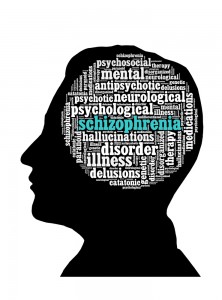A serious mental abnormal condition or derangement, which involves loss of contact with reality is regarded as psychosis. Psychosis is very broad term and can mean normal aberrant experiences that include complex and catatonic expressions of schizoaffective disorder, borderline personality disorder, depression, anxiety disorder, and schizophrenia. Basically, psychosis is a descriptive term for hallucinations and delusions, which can result in violence.
An extreme neurological illness that impacts a person’s mental and emotional health is known as schizoaffective disorder. It is a mental disorder in which people behave abnormally and fail to recognize what is real. It can be treated with accurate treatment and care.
Borderline personality disorder(BPD) is a mental disorder that leads to emotional instability and a variety of stressful mental and behavioral problems. Whereas, depression lead to a pervasive and persistent low mood accompanied by low self-esteem. Psychosis also leads to anxiety, which is a group of mental disorders, where worry about future events and fear is a reaction to current events. Feeling of panic, fear, and uneasiness, insomnia, shortness of breath, and dry mouth are some of the symptoms that cause anxiety disorder.
Detailing schizophrenia:
 A brain disorder, in which the person acts, thinks and sees the world in an abnormal way or manner. In this disease, people have altered the perception of reality after losing contact with reality. They may hear voices that are not present, speak in strange ways and sometimes believe that others are trying to harm them. Moreover, schizophrenia distresses the patients severely and persistently, making them withdrawn and distraught with fear.
A brain disorder, in which the person acts, thinks and sees the world in an abnormal way or manner. In this disease, people have altered the perception of reality after losing contact with reality. They may hear voices that are not present, speak in strange ways and sometimes believe that others are trying to harm them. Moreover, schizophrenia distresses the patients severely and persistently, making them withdrawn and distraught with fear.
An estimated 0.3–0.7% of people get affected by schizophrenia at some point in their life. It has been reported that about 24 million people worldwide get affected by this severe disease as of 2011. Basically, schizophrenia results in hallucinations, delusions, and jumbled thinking and behavior. Schizophrenia can be managed successfully after identifying the causes, signs and symptoms.
The cases of schizophrenia mostly appear in people who are in their late teens or early adulthood. But, it may generally appear for the first time in the middle ages or even later. In rare cases, this disease can affect young children and adolescents. It is a fact that the earlier schizophrenia develops, the more severe it is. It is also more severe in men than in women.
Causes of schizophrenia:
Any sort of disease or illness has causes to develop, as in the case of schizophrenia. The various factors that cause schizophrenia are mentioned below:
- Genes and environment- Various researches have proved that schizophrenia runs in families and the illness occurs in only 1 percent of the people. Basically, 10 percent out of 1 percent are at higher risk of getting this disease, when their first-degree relatives are suffering with the disorder, like parents, brother, or sister.
- Environment- Environmental factors play a vital role in every disease. Basically, environmental factors include lifestyle and prenatal (occurring 5 months before and up to one month after birth)stressors. Viral infections also contribute to the development of this disease.
- Different brain chemistry- An imbalance in the chemical reactions of the brain involving neurotransmitters, dopamine, and glutamate plays an important role in developing and triggering schizophrenia. Neurotransmitters are the substances that allow brain cells to communicate among each other.
- Drug use– Drugs like LSD are known to cause schizophrenia relapses as per research published in the U.S. journal. People with a predisposition to a psychotic illness like schizophrenia and usage of cannabis may trigger the first episode of this disease.
Signs and symptoms of schizophrenia:
Unfocused and stressful experiences may precede the emergence of schizophrenia. These can trigger relationship problems, divorce and unemployment. Confused thinking, auditory hallucinations, less social engagement, and emotional expression are some of the symptoms of schizophrenia. The other signs and symptoms of this disease are as follows:
 Delusions- Delusions are false beliefs that are not based on real situations. The delusions often include bizarre ideas like you’re being harmed or attacked by martians, or your body is not functioning properly.
Delusions- Delusions are false beliefs that are not based on real situations. The delusions often include bizarre ideas like you’re being harmed or attacked by martians, or your body is not functioning properly.- Auditory hallucinations- It involves hearing things that doesn’t exist and hallucinations can be in any of the senses, but hearing voices is the most common hallucination.
- Thought disorder- This is one of the most common symptoms experienced by a schizophrenic person, in which he/she may jump to another subject for no logical reason. In some cases, the patient has the perception that somebody is messing with his/her mind.
- Cognitive difficulties- This symptom includes the effective person’s inability to concentrate, remember things, and to organize himself/herself.
Treating schizophrenia:
Schizophrenia is a chronic disorder, which can be cured and treated with proper support, medication, and therapy. During times of severe symptoms, hospitalization is necessary to ensure safety, proper nutrition, and basic hygiene. Treatment process of schizophrenia is described as follows:
Medications:
There are various medications available in the market but to treat this disease antipsychotic medications are your best bet. These older types of medicines are known as conventional antipsychotics, some of which include chlorpromazine, perphenazine, haloperidol, and fluphenazine. Basically, these antipsychotics are often cheaper than the newer ones, especially the generic versions known as atypical antipsychotics.
One of the medications of schizophrenia is clozapine, an effective medication that treats psychotic symptoms like hallucinations and delusions. But, people should be cautious while having this antipsychotic medication as it can cause serious problems called agranulocytosis, which is regarded as the loss of white blood cells that help fighting against infection. Moreover, this medication is quite handy for people who do not respond to antipsychotic medications.
Psycho-social interventions:
There are a number of psycho-social interventions that may be useful in the treatment of schizophrenia, such as:
- Individual therapy- This therapy helps in learning to cope with stress and identifying the early warning signs of relapse.
- Social skills training- Under this therapy process, the main focus is on improving communication and social interactions.
- Family therapy– Family therapy plays a significant role in decreasing relapse rates for the schizophrenic family member. This therapy helps in encouraging the family to deal with the problem by arranging a family meeting whenever an issue arises and specifying the exact nature of the problem, to list and consider alternative solutions.
- Group therapy- This therapy is commenced along with drugs and produces better results than drug treatment alone. Group therapy basically focuses on real-life plans, problems, and relationships. Moreover, this therapy type is very helpful in decreasing social isolation and increasing reality testing.
- Relaxation and stress management- Stress-reduction techniques like meditation and yoga are greatly beneficial in curing a schizophrenic person.
Living with schizophrenia:
Schizophrenic patients can get help from professionals and caregivers at residential or day programs. It is a fact that family members are the patient’s primary caregivers. Family members and friends may need to provide proper attention and care to keep their loved one safe.
Finally, there is no sure way to prevent schizophrenia, but early treatment may help in getting symptoms under control and improving the long-term outlook. Stick with a solid treatment plan that involves medication and stress reduction techniques to worsen the schizophrenia symptoms.
If you found this article helpful or know anyone who’s suffering from mental disorders, please share this article with them. Also, post comments in case you have health queries.
Get useful health tips and remedies regularly on your Facebook feed.



